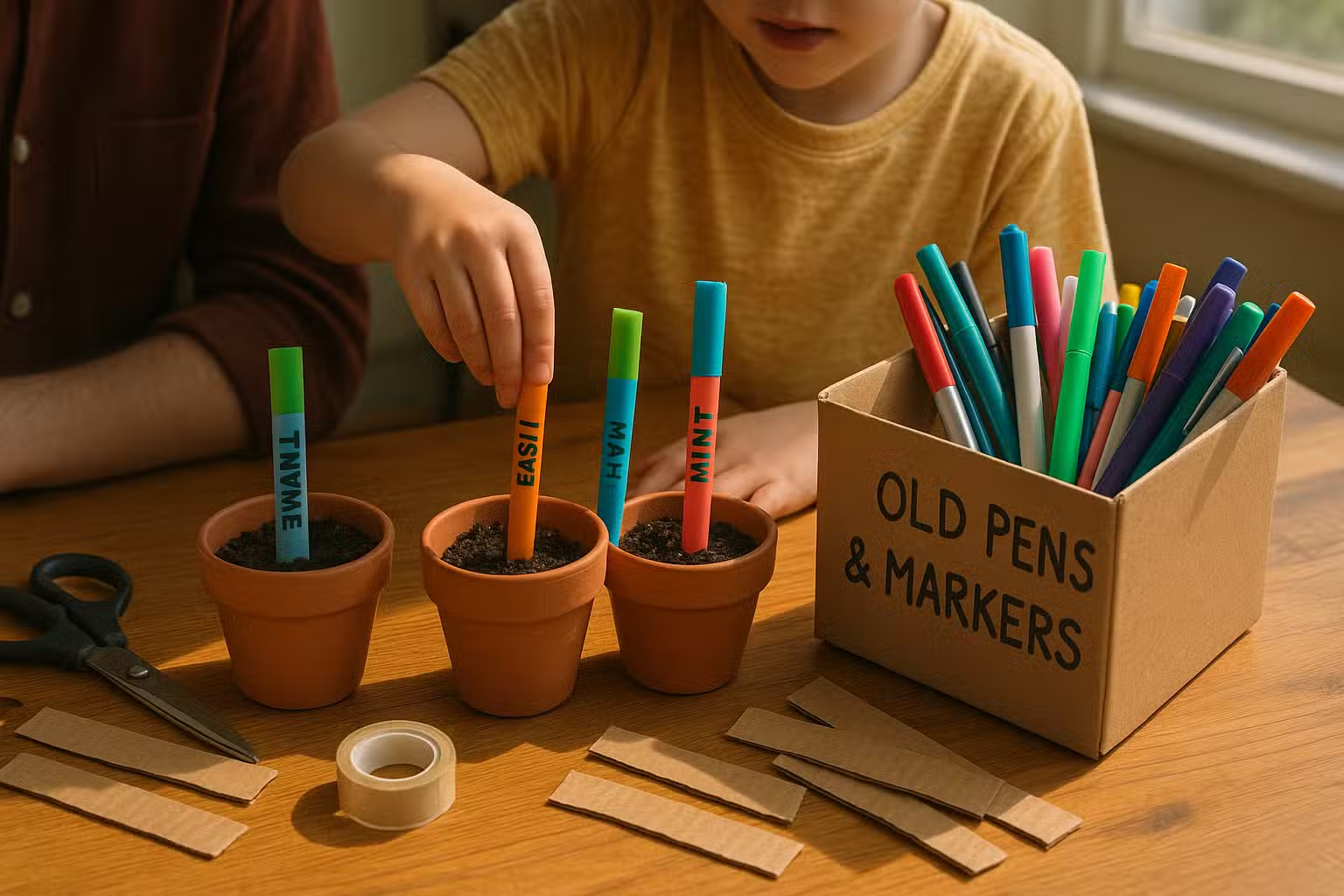Customer service
Our customer support is available every working day between 8am and 4pm.
How to Recycle Pens & Markers
Smart Solutions That Protect the EnvironmentMost pens and markers end up in landfill, even though parts of them can be recycled or reused. With millions discarded every year, it’s worth knowing how to recycle them properly. This article offers practical steps to reduce waste and keep your writing tools out of the bin.

Ways to Recycle Pens at Home
- Set up a recycling box for used pens, markers, and highlighters.
- Use the TerraCycle programme to collect and send in writing tools.
- Revive dry markers by soaking the tip in water or alcohol.
- Repurpose old pens as plant labels or cable organisers.
- Donate unused pens to schools or community art centres.
- Choose refillable or biodegradable pens for your next purchase.
Give Markers a Second Life
Recycling pens might not be as easy as tossing a bottle in the blue bin, but it’s doable. Start by checking with local waste management services—some offer drop-off points or scheduled collections for hard-to-recycle items like pens, markers, and mechanical pencils. Don’t forget to sort by material where possible.
One of the best options is the TerraCycle pen recycling programme, which collects writing instruments and sends them for proper processing. You can set up a box at home, school or work to gather old pens, ink cartridges and highlighters before shipping them off.
Some office supply stores also offer pen and marker recycling stations near the entrance. It’s worth asking the next time you’re shopping for stationery. Recycling may take a bit of effort, but it helps reduce plastic waste, protect the environment, and keep your old writing implements out of the bin.
Close the Loop with Eco Products
Want to recycle less? Start with what you buy. Switching to refillable pens, fountain pens, or those made from biodegradable plastic can drastically reduce waste. Many pens today use renewable resources like corn starch or polylactic acid, which break down more easily than standard plastic materials.
Brands are also stepping up. Look out for pens and markers labelled as recyclable or part of a take-back scheme. Some even come with built-in instructions on how to return used parts. Choosing wisely means you’re not just writing—you’re helping close the loop before the pen even hits the page.
Before you refill your drawer, check out marker pens and eco writing tools that align with your sustainable goals. Buying smart saves you money in the long run and cuts down on plastic pollution. It’s a small act with lasting impact.
|
Recycling Option |
How It Works | Effort Level |
|---|---|---|
| Local Collection Point |
Drop pens at municipal or recycling centre bins. | Low |
| TerraCycle Programme |
Collect and ship pens using free recycling boxes. | Medium |
| Office Supply Store Drop-off |
Return pens at in-store recycling stations. | Low |
| Upcycling at Home |
Repurpose pens as plant markers or organisers. | Medium |
| Donation for Reuse |
Give to schools or community craft groups. | Low |
Practical ways to recycle or reuse writing tools
Conclusion
Recycling pens and markers doesn’t have to be complicated. With the right know-how, you can keep useful materials out of landfill and support a more sustainable loop. Small changes like these can help reduce waste and protect the environment every day.
At Viking, we’re passionate about workplace solutions that are both cost-effective and eco-conscious. Whether you’re looking to recycle smarter or switch to sustainable products, we’re here to help you create a workplace that works better for you—and the planet.
Frequently Asked Questions
-
Can I recycle pens in household recycling bins?
No, most pens are made of mixed materials like plastic, ink, and metal, which aren’t suitable for standard recycling bins. Check with your local waste management services or use programmes like TerraCycle that specialise in recycling writing implements such as pens, ink cartridges, and mechanical pencils.
-
Where can I return used pens and markers?
You can return used pens, markers, and highlighters through TerraCycle collection points or drop them off at participating office supply stores. Some brands and shops offer recycling boxes on-site. Always check which writing implements they accept, as rules can vary depending on product and material type.
-
What can I do with old pens at home?
Old pens can be reused in creative ways—turn them into plant labels, drawer organisers, or DIY art projects. Empty fountain pens can be refilled, and dried markers sometimes work after soaking in water. Keeping them out of the waste container helps reduce plastic pollution and save usable materials.
-
Are biodegradable plastic pens actually compostable?
Some pens claim to use biodegradable plastic or bioplastics like polylactic acid made from corn starch. However, these products often require industrial composting conditions. They won’t break down in home compost bins, so always check the label and dispose of them via appropriate recycling or composting facilities.

